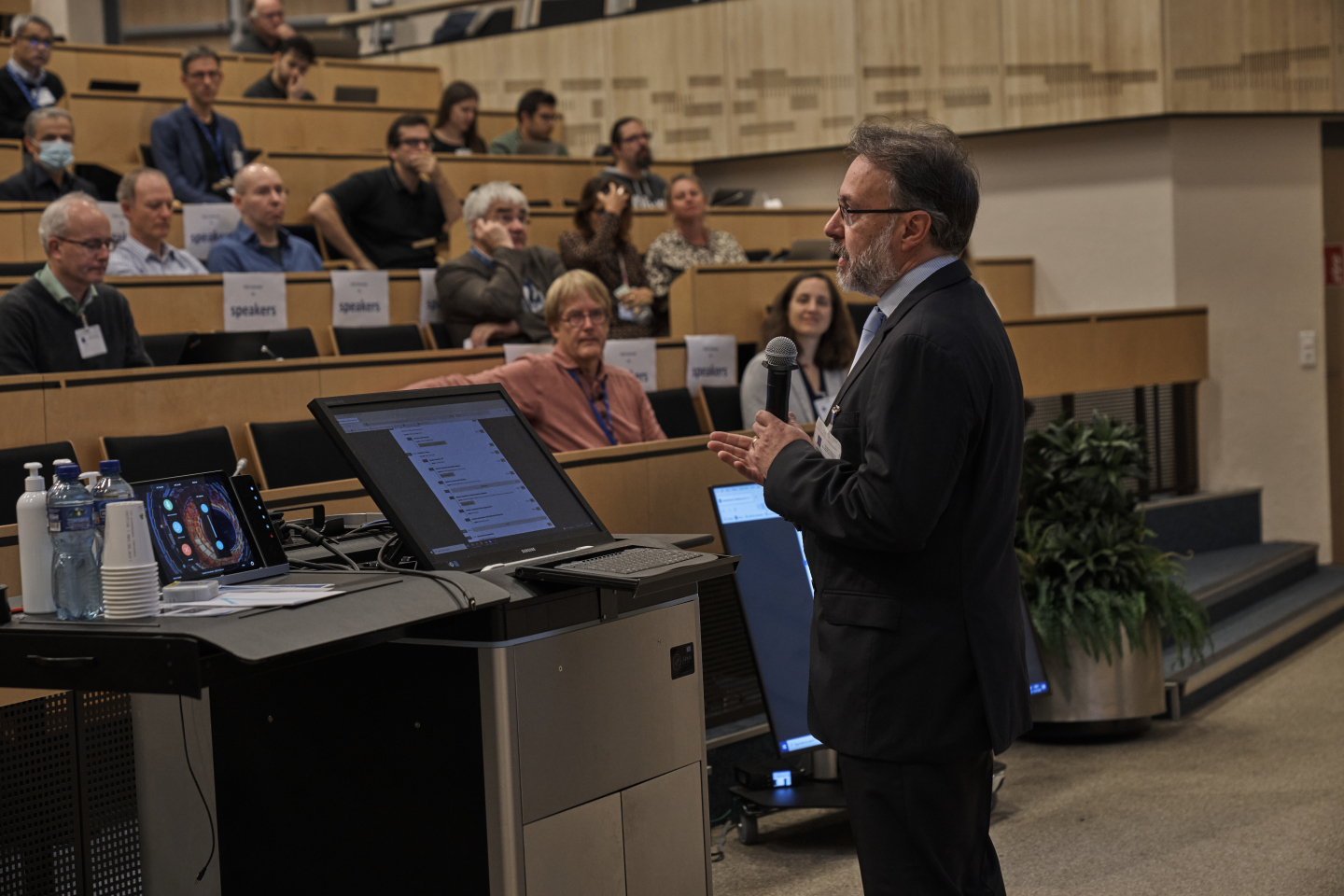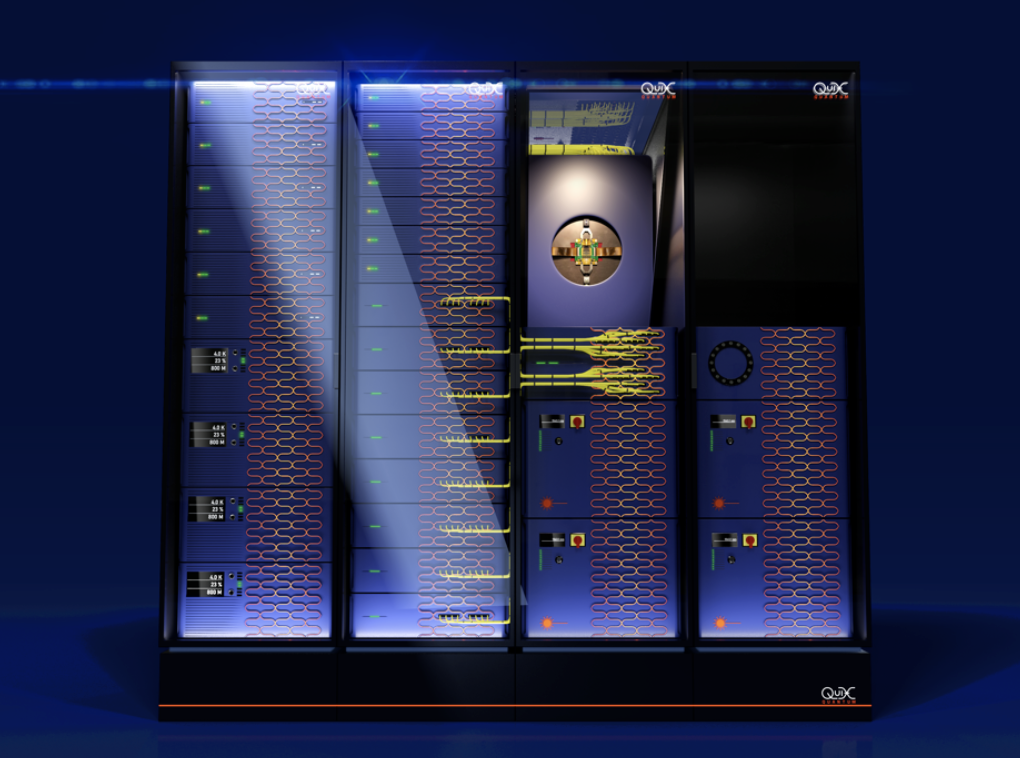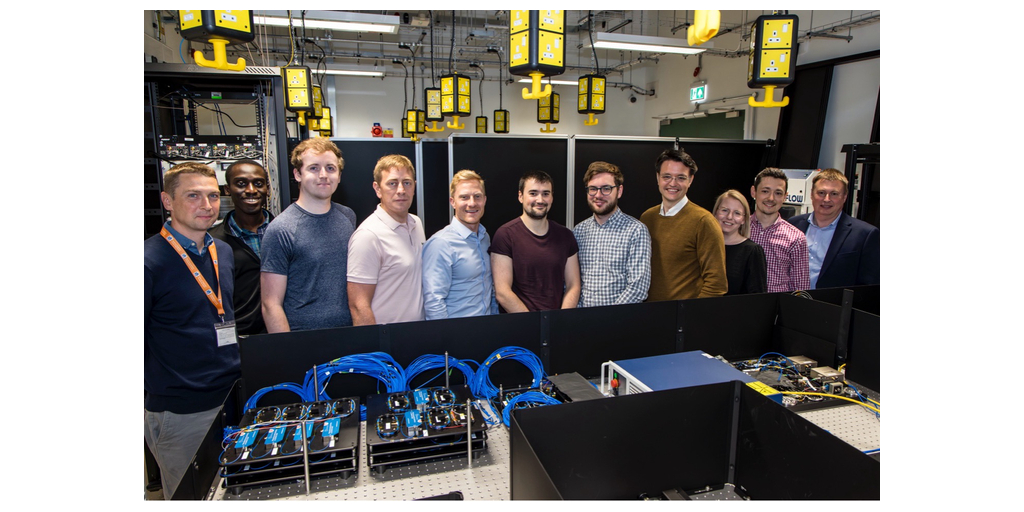Insider Brief
- Researchers published an important white paper identifying activities in particle physics where quantum-computing technologies could be applied.
- Experts that wrote the paper hailed from CERN, DESY, IBM Quantum and over 30 other organizations.
- The areas identified relate to both theoretical and experimental particle physics.
- Image: The first International Conference on Quantum Technologies for High-Energy Physics (QT4HEP) was held at CERN.
PRESS RELEASE — Researchers recently published an important white paper identifying activities in particle physics where burgeoning quantum-computing technologies could be applied. The paper, authored by experts from CERN, DESY, IBM Quantum and over 30 other organizations, is now available on ArXiv.
With quantum-computing technologies rapidly improving, the paper sets out where they could be applied within particle physics in order to help tackle computing challenges related not only to the Large Hadron Collider’s ambitious upgrade program, but also to other colliders and low-energy experiments worldwide.
The paper was produced by a working group set up at the first-of-its-kind “QT4HEP” conference, held at CERN last November. Over the last eight months, the 46 members of this working group have worked hard to identify areas where quantum-computing technologies could provide a significant boon.
The areas identified relate to both theoretical and experimental particle physics. The paper then maps these areas to “problem formulations” in quantum computing. This is an important step in ensuring that the particle physics community is well positioned to benefit from the massive potential of breakthrough new quantum computers when they come online.

“Quantum computing is very promising, but not every problem in particle physics is suited to this mode of computing,” says Alberto Di Meglio, head of the CERN Quantum Technology Initiative (CERN QTI) and one of the paper’s lead authors, alongside DESY’s Karl Jansen and IBM Quantum’s Ivano Tavernelli. “It’s important to ensure that we are ready and that we can accurately identify the areas where these technologies have the potential to be most useful for our community.”
As far as theoretical particle physics is concerned, the authors have identified promising areas related to evolution of the quantum states, lattice-gauge theory, neutrino oscillations and quantum field theories in general. The applications considered include quantum dynamics, hybrid quantum/classical algorithms for static problems in lattice gauge theory, optimization and classification.
On the experimental side, the authors have identified areas related to jet and track reconstruction, extraction of rare signals, for-and-beyond Standard Model problems, parton showers and experiment simulation. These are then mapped to classification, regression, optimization and generation problems.
Members of the working group behind this paper will now begin the process of selecting specific use cases from the activities listed in the paper to be taken forward through CERN’s and DESY’s participation in the IBM Quantum Network, and through collaboration with IBM Quantum, under its “100×100 Challenge”. IBM Quantum is long-standing collaborator of CERN QTI and the Center for Quantum Technologies and Applications (CQTA) at DESY.
IBM’s 100×100 Challenge will see the company provide a tool capable of calculating unbiased observables of circuits with 100 qubits and depth-100 gate operations in 2024. This will offer an important testbed for taking forward promising selected use cases from both particle physics and other research fields.
The working group will meet again at CERN for a special workshop on 16 and 17 November, immediately before the Quantum Techniques in Machine Learning conference is held at the Laboratory from 19 to 24 November.
If you found this article to be informative, you can explore more current quantum news here, exclusives, interviews, and podcasts.



















